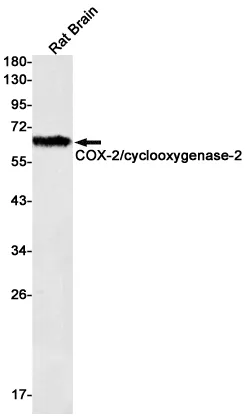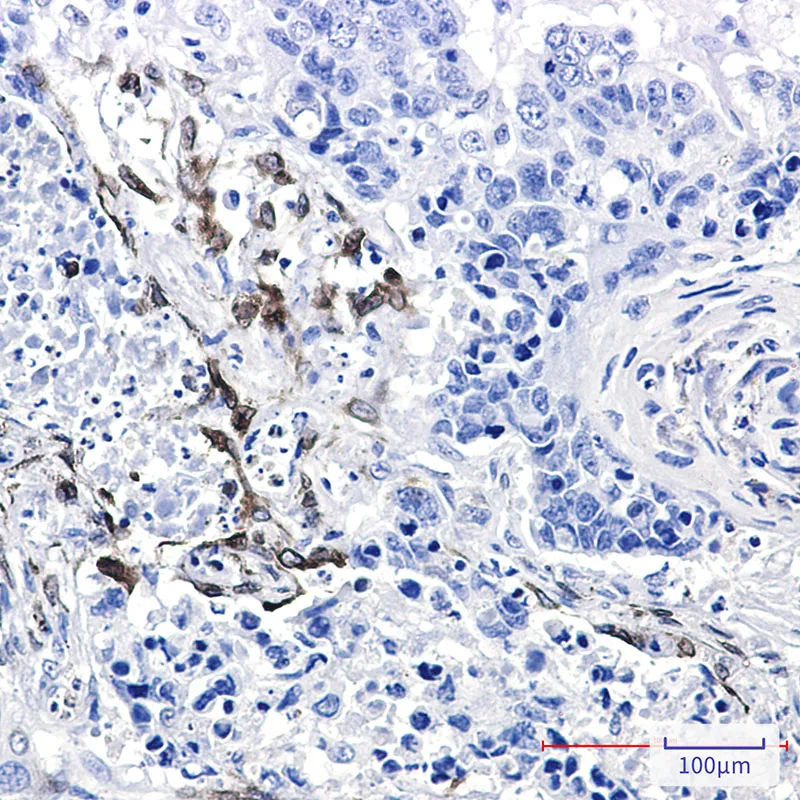

Size:100μL Price:$288
Size:200μL Price:$520
Application:WB,IHC
Reactivity:Human,Mouse,Rat
Conjugate:Unconjugated
Optional conjugates: Biotin, FITC (free of charge). See other 26 conjugates.
Gene Name:PTGS2
Summary
| Production Name | Cyclooxygenase 2 Rabbit Monoclonal Antibody |
| Description | Recombinant rabbit monoclonal antibody |
| Host | Rabbit |
| Application | WB,IHC |
| Reactivity | Human,Mouse,Rat |
Performance
| Conjugation | Unconjugated |
| Modification | Unmodified |
| Isotype | IgG |
| Clonality | Monoclonal |
| Form | Liquid |
| Storage | Store at 4°C short term. Aliquot and store at -20°C long term. Avoid freeze/thaw cycles. |
| Buffer | 50mM Tris-Glycine(pH 7.4), 0.15M NaCl, 40% Glycerol, 0.01% Sodium azide and 0.05% protective protein |
| Purification | Affinity Purification |
Immunogen
| Gene Name | PTGS2 |
| Alternative Names | COX2; COX-2; PHS-2; PGG/HS; PGHS-2; hCox-2; GRIPGHS |
| Gene ID | 5743 |
| SwissProt ID | P35354 |
Application
| Dilution Ratio | WB 1:500-1:1000,IHC 1:50-1:100 |
| Molecular Weight | Calculated MW: 69 kDa; Observed MW: 69 kDa |
Background
Converts arachidonate to prostaglandin H2 (PGH2), a committed step in prostanoid synthesis. Constitutively expressed in some tissues in physiological conditions, such as the endothelium, kidney and brain, and in pathological conditions, such as in cancer. PTGS2 is responsible for production of inflammatory prostaglandins. Up-regulation of PTGS2 is also associated with increased cell adhesion, phenotypic changes, resistance to apoptosis and tumor angiogenesis. In cancer cells, PTGS2 is a key step in the production of prostaglandin E2 (PGE2), which plays important roles in modulating motility, proliferation and resistance to apoptosis.
Research Area
Cardiovascular
